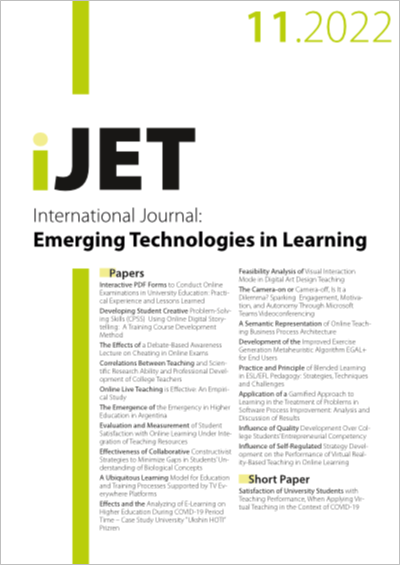Interactive PDF Forms to Conduct Online Examinations in University Education: Practical Experience and Lessons Learned
DOI:
https://doi.org/10.3991/ijet.v17i11.27905Keywords:
Online assessment, Interactive PDF forms, Cognitive Load Theory, CheatingAbstract
Due to the Corona Pandemic, paper-based examinations had to be transferred to an online format on short notice. At the Lucerne University of Applied Sciences and Arts we conducted three online examinations with a total of 816 students using an interactive PDF form. We faced two major challenges redesigning our examinations: 1) avoiding unnecessary stress to students' working memory by choosing a simple examination design and 2) minimizing the possibility of cheating. In our paper we explain how we addressed these challenges working with an interactive PDF form in combination with the learning management system Ilias. Our results show that using an interactive PDF form lowers the extraneous cognitive load on our students, increases our efficiency in correcting, reduces error rates in grading and further allows for faster feedback to our students.
Downloads
Published
How to Cite
Issue
Section
License
Copyright (c) 2022 Imke Keimer, Tatiana Agnesens, Carsten Kuechler

This work is licensed under a Creative Commons Attribution 4.0 International License.



